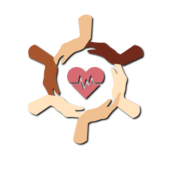Autism spectrum disorder (ASD) is a complex neurodevelopment condition that affects communication, behavior, and social interaction. With increasing awareness and diagnosis rates, researchers are actively working to better understand autism and explore new ways to support those affected. One of the most important ways this happens is through clinical trials.
If you or someone you love is on the spectrum, participating in a clinical trial can be a way to contribute to advancing science—while potentially accessing new therapies and services.
What Are Clinical Trials for Autism Studying?
Clinical trials focused on autism cover a wide range of goals. Some of the most common areas of research include:
- Behavioral Interventions: These studies might explore therapies that help with communication, social skills, or managing daily routines. Trials may compare existing therapies or test new approaches.
- Medications: While there’s currently no medication that treats the core symptoms of autism, some clinical trials focus on medications that address associated symptoms like anxiety, irritability, aggression, hyperactivity, or sleep issues.
- Genetics and Biomarkers: Some trials are observational and aim to understand how genetics, brain structure, or biomarkers are related to autism. These often involve blood tests, imaging (like MRI), or behavioral assessments.
- Assistive Technologies: Clinical trials may also test the effectiveness of digital tools—such as apps, AI-powered devices, or virtual reality programs—designed to support learning or communication.
- Early Diagnosis and Intervention: Many studies focus on infants and toddlers who may be at high risk for ASD, looking at ways to improve early detection and outcomes through early therapies.
What Do These Trials Offer?
Every trial is different, but participation typically includes:
- Access to expert evaluations and close monitoring from specialists.
- Compensation for time and travel in most cases.
- Early access to promising treatments that aren’t yet widely available.
- A chance to contribute to research that could help thousands of individuals and families in the future.
Some trials are short-term, while others might last months or even years. They are carefully monitored for safety, especially those involving children or medication.
Common Eligibility Criteria
Eligibility to join a study depends on what the trial is investigating. Here are some criteria that often come into play:
- Age: Many trials are age-specific, such as studies only for toddlers (1–3 years), school-aged children, or adults on the spectrum.
- Diagnosis: Some studies require a formal autism diagnosis, while others look for participants who are undiagnosed but may be at risk.
- Co-occurring conditions: Certain studies exclude individuals with epilepsy, ADHD, or other diagnoses, while some trials specifically focus on these populations.
- Current treatments: If you’re already using medications or therapies, you may or may not be eligible depending on the study.
- Location: Many trials require in-person visits, so being near a research center can be important. However, remote trials are becoming more common.

How to Find Autism Clinical Trials
- ClinicalTrials.gov – A searchable database of all registered trials in the U.S. and many international ones.
- Research centers and children’s hospitals – Many of these have ongoing autism studies.
- Autism advocacy organizations – Groups like Autism Speaks or the Simons Foundation often list trials or research opportunities.
Final Thoughts
Clinical trials are an essential part of autism research and the development of better therapies and tools. Whether you’re a parent of a child on the spectrum or an adult exploring ways to manage ASD, participating in a clinical trial could be a meaningful and empowering step.
As always, it’s important to discuss any research opportunity with your healthcare provider and make sure you understand the potential risks and benefits before joining.

